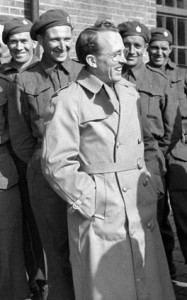Print Edition: May 13, 2011
By Jack Brown (The Cascade) – Email

Many commentators have written of the pernicious influence of religion on the public discourse in Western nations, including Canada. Often, these commentaries focus on the relationship between certain right-wing political parties or ideas and certain factions of religious groups, such as the recent work The Armageddon Factor by Marci MacDonald. This focus on the ‘religious right’ in Canada and abroad, and the worry that many have voiced regarding its influence in our public discourse is flawed, ahistorical, and rather short-sighted.
It will come as no surprise to all that religion influences political discourse. Despite nearly three centuries of Enlightenment secularism, a majority of citizens in Canada still at least nominally identify as belonging to some faith group. Although many would not agree with the theological doctrines their preferred faith community embraces, attitudes and moral intuitions are still very much influenced by them. But it is not this latent influence on the attitudes of citizens that is most notable. That designation belongs to the legacies of our political leaders and their parties.
It is easy to forget that J.S. Woodsworth, founder and first leader of the Co-operative Commonwealth Federation, was a Methodist minister. His socialism and his dedication to peace and pacifism were bound up with his own faith, in a manner similar to that of his successor, Tommy Douglas. It was Tommy Douglas (himself a Baptist preacher) who brought universal public Medicare to Canada as leader of the first democratic socialist government in Saskatchewan. For both of these men, their faith was profoundly influential in their politics.
In contemporary society, many more religious doctrines and faith communities populate Canada, and increasingly, members of these newer groups have entered public life. Should we fear the influence of the Sikhs who, as members of the Khalsa order, are bound to fight against tyranny and promote justice? Or the Buddhists who encourage compassion and understanding toward all living things? What about the Baha’is who dedicate themselves to advancing universal brotherhood and fidelity amongst all peoples? In every circumstance, the doctrines espoused by these and many other faith communities are ones that enrich our public discourse, not destroy or undermine it.
To be sure, the dangers of sectarianism are ever present. But the solution to intolerance or narrowness is not to forbid totally the voice of faith in our public discourse. Rather, the lasting solution is to engage with it in a manner that is both respectful and honest. Of course, a modern, multicultural liberal democracy has no business being theocratic in its policies or institutions. It is neither correct nor proper for the state to indulge in playing out theological arguments in the public sphere.
Nevertheless, a robust political culture should be able to accommodate a myriad of different views. Should it matter whether one looks to Christ or Muhammad or human reason itself for guidance in serious matters of public concern? No. Should we forbid citizens and leaders alike from drawing upon their religious views as inspiration for building the common good? Definitely not.


